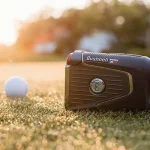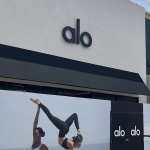While announcing plans to close nearly a quarter of its stores in early December, Pacific Sunwear said its core business is stabilizing with some turnaround efforts starting to pay off.
The 200 stores set to close over the next 13 months on average had a sales volume of $600,000 versus slightly north of $1 million for the remainder of the fleet. The stores were also generating negative 9 comps, versus a flat comp for the remainder. And PacSun expects to generate an improvement in EBITDA and cash flow of $10 million to $15 million by having the stores out of its portfolio as of the end of the next couple of years. About 100 stores will be closed this year with the remainder to shutter in early 2013.
With another roughly 100 stores closed in 2011, Pacific Sunwear will shrink from 850 stores at the start of 2011 to a “stabilized real estate portfolio size of about 550 to 600 stores,” said Michael Kaplan, PacSun's SVP and CFO, at the ICR Xchange investor conference last week.
With new financing attained through an investment form Golden Gate and reworked credit facility, management also said its balance sheet had improved.
Gary Schoenfeld, president and CEO, noted that the company during the prior week announced that its December same-store sales were flat, and that its combined November and December same-store sales were minus 1 percent through Dec. 31. The company also reconfirmed its fourth quarter same-store sales guidance. He stated, “I think in total, when you look at 2011 in aggregate, I think what one sees is a stabilizing in the business,” and indicated that more signs of turnaround strategy will be evident in the spring.
At the store level, a major focus will be on the brands carried. Its heritage brands including Hurley, Volcom and Vans have been part of the mix for a long time and “remain very much a foundation to our business, particularly on the men's side.” But young up-and-coming brands, mentioning Diamond, or Crooks & Castles, Enjoi, and Young & Reckless as examples, have been added to the mix over the last two years with a notable focus on adding more street lifestyle names beyond its surf and skate offerings. Proprietary brands are being narrowed with the ones left being upgraded.
The stores are also finding success reaching a slightly older women's consumer. Said Schoenfeld, “We want to be a destination for college-age girls and guys. And if you've got them in college, you're certainly going to have high schoolers aspiring to be part of the store. That's where we want to be. I think three years ago we were really, for girls, a tween retailer — middle school and a bit into high school. And I think we've made important progress in that regard.”
In 2012, a particular focus will be on brand relevance. Schoenfeld noted that many consumers “perceive us fairly narrowly just as that beach retailer. And we are really committed to becoming a true lifestyle brand.” He added that PacSun was at the height of its success in the late '90s and early 2000s when it was particularly known for its dedication to heritage brands but lost that position when it shifted to more proprietary product. The opportunity is to “redefine PacSun as a true specialty retailer that offers something different from” the vertical retailers in the mall but offer a more appealing shopping experience than department stores.
“You still hear a lot of teens talk about Macy's and Kohl's and JC Penney and they're not fully satisfied by what specialty retailers are offering them,” said Schoenfeld. “And we think that offers us an important strategic opportunity to move the company forward over the next few years.”














